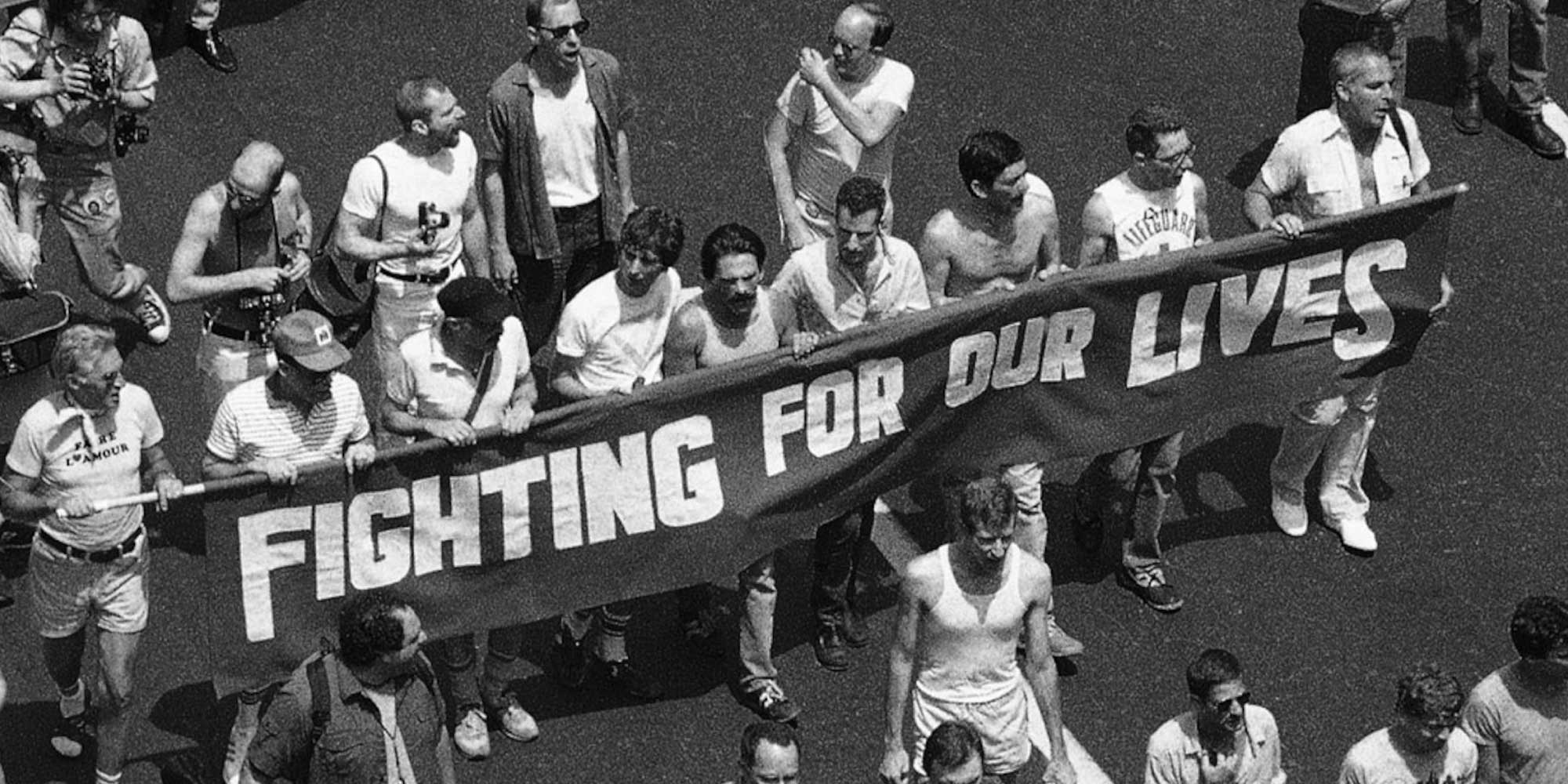
Media Contact:
Joe Hui
Director of Communications
jhui@aplahealth.org
213.201.1342
7.7.2023
If you have received a cancer diagnosis, you probably understand yourself as a person living with cancer, not a cancer victim. Or you may have a serious life-threatening condition and be receiving treatment with an experimental drug that shows clinical promise and is available through FDA-approved expanded access protocols. In either case, your self-understanding as a person living with a disease rather than being victimized by it or your accelerated access to an experimental treatment are largely due to the efforts of a group of gay men with AIDS who changed how Americans understand illness and access treatment.
AIDS was first described in medical literature in June of 1981. Two years later, at a lesbian and gay health conference in Denver about a dozen gay men with AIDS representing the nascent AIDS movements on the east and west coast convened. The conference’s theme was prescient: “Health Pioneering in the Eighties.” These early activists pioneered a novel set of principles including recommendations for all people, recommendations for people with AIDS, and a statement of rights for people with AIDS. Their declaration, known as the Denver Principles, articulated ground rules and an ethos for people with AIDS.
In a context in which individuals with AIDS were largely gay men, faced a life expectancy of about 18 months, had virtually no legal protections and could be indicted as criminals, condemned as sinners, or pitied as victims, the Principles boldly and bravely asserted: “We condemn attempts to label us as ‘victims,’ a term that implies defeat, and we are only occasionally ‘patients,’ a term that implies passivity, helplessness, and dependence upon the care of others. We are ‘People With AIDS.’”
People with AIDS – PWA – was a radical moniker. For individuals facing a novel, catastrophic illness like AIDS, the notion that living with this disease rather than passively dying from it was a decisive reframe away from acquiescence to empowerment and agency. The concept disrupted convention. It was also irresistible as it immediately resonated with others. People facing cancer or other life-threatening or chronic conditions quickly found empowerment by embracing this self-understanding.
The Principles’ recommendations for the general population challenged misconceptions about casual contact spreading the disease along with a call for civil protections for PWAs and a demand that they not be scapegoated or blamed for the epidemic.
The specific recommendations for PWAs became the blueprint of AIDS activism and advocacy. They urged PWAs to assume specific leadership roles in responding to the epidemic: form caucuses, plan their own strategies, be involved at every level of decision-making and serve on the boards of the emerging community-based organizations providing services.
The Principles demanded that PWAs “be included in all AIDS forums with equal credibility as other participants, to share their own experiences and knowledge.” The AIDS Coalition to Unleash Power (ACT-UP), established in 1987, is frequently remembered for its confrontational protests and street theater. ACT-UP’s ultimate success, however, was not drama but a determined application of the Principles. By training a small circle of activists in science and the particulars of the drug approval process and securing them a seat at the NIH table, ACT-UP persuaded regulators to reevaluate the drug approval process. They facilitated expedited access to promising treatments for HIV and related opportunistic diseases, changes also applied to treatments for other catastrophic illnesses.
Once can see in the Principles echoes of the of the women’s self-help health movement that began in the 1960s. Embodied in the seminal book Our Bodies, Ourselves (1973), the health movement prized the knowledge and control women could access from self-awareness of their own body and experiences and the related expertise it conferred. It advocated for strong self-help organizations. Unfortunately, like the early women’s health movement, the Principles did not speak to the experiences or circumstances of people of color or the poor, the populations that eventually would become the most impacted by the disease.
The Denver Principles are an abiding achievement of the AIDS movement. They presented a vision for how people living with AIDS should see themselves and how the world should relate to them. PWAs used the Principles as a blueprint to build a robust, activated and empowered community, driving activism for the last 40 years. Their disruptive engagement crossed over into many other communities. The measure of their contribution is that we cannot really imagine a world without the self-empowerment mindset they established among communities facing serious illness. The revolutionary approach to agency and care that began in Denver with those gay men has never stopped. It is one of the proudest accomplishments of the PWA movement, an achievement that benefits everyone.
The Denver Principles
We condemn attempts to label us as ‘victims,’ a term that implies defeat, and we are only occasionally ‘patients,’ a term that implies passivity, helplessness, and dependence upon the care of others. We are ‘People With AIDS.’
Recommendations for all people
Recommendations for people with AIDS
Rights of People With AIDS